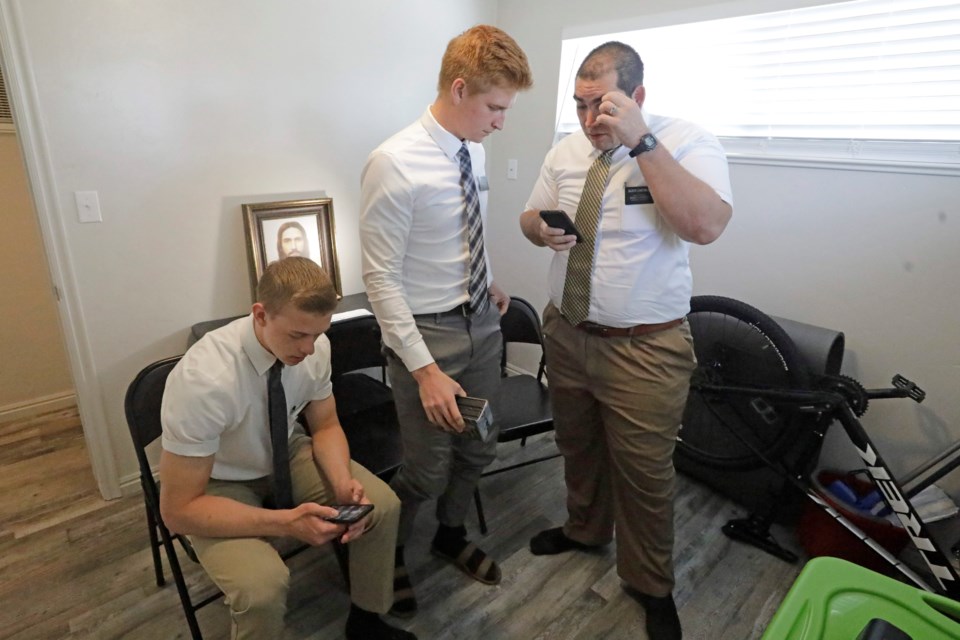SALT LAKE CITY — The white shirts and ties that have long been the signature outfit for young men serving missions for The Church of Jesus Christ of Latter-day Saints will no longer be the only outfit choice under a dress code change announced Friday.
Some men will now be able to wear blue dress shirts and no ties during faith outreach missions for the Utah-based church. While many will still wear white shirts and ties, regional leaders now have the option to allow the new attire if it helps “safety, effectiveness, approachability and cultural sensitivity” for missionaries in their areas of the world, church officials said in a news release.
It marks the church's latest step in recent years to modernize a missionary program that is considered a rite of passage for young members. Last year, leaders in the faith known widely as the Mormon church changed their rules to allow missionaries to call home every week instead of only twice a year.
Nearly two years ago, female missionaries got the option to wear dress slacks, instead of only skirts and dresses. That was designed to help women stay warm in cold climates and make it easier to ride bicycles.
“Missionary attire has regularly adapted over time according to location, style and custom,” said Dieter F. Uchtdorf, a member of a top governing body called the Quorum of the Twelve Apostles and chairman of the Missionary Executive Council. “These exceptions are a continuation of that process.”
Church spokesman Daniel Woodruff said the most recent change was under consideration for some time.
The church has kept its missionary program going during the coronavirus pandemic. It brought home more than 26,000 young men and women from foreign missions and sent some of them out again in their home countries to do most of their faith outreach online.
The tech shift began with church leaders giving some missionaries tablets in 2014. That has since led to most young church members getting smartphones to use in their faith outreach. Two years before that, the church changed their rules to allow men to start missions at 18 instead of 19, and women at 19 instead of 21, which has led to more women serving.
Brady McCombs, The Associated Press



